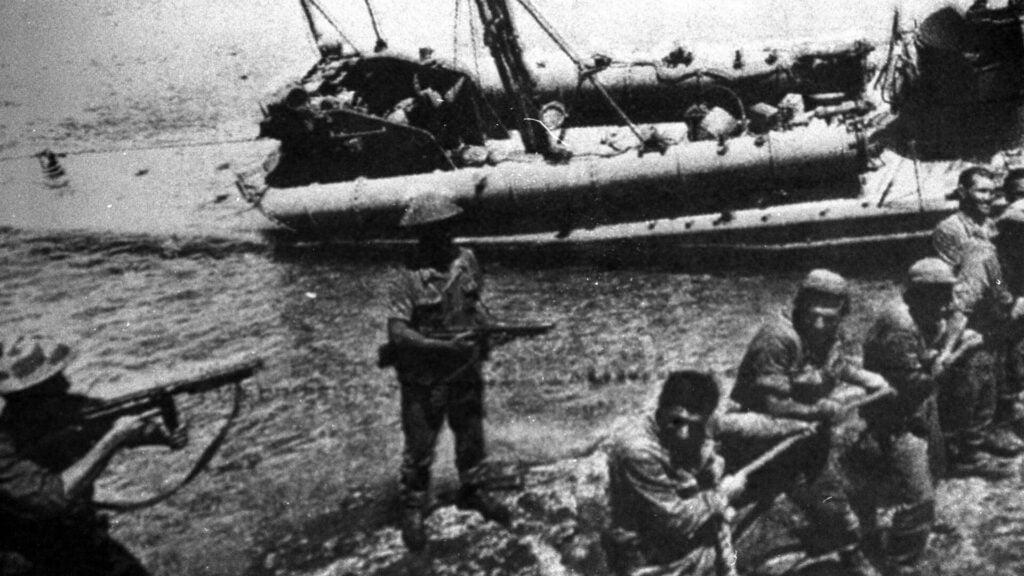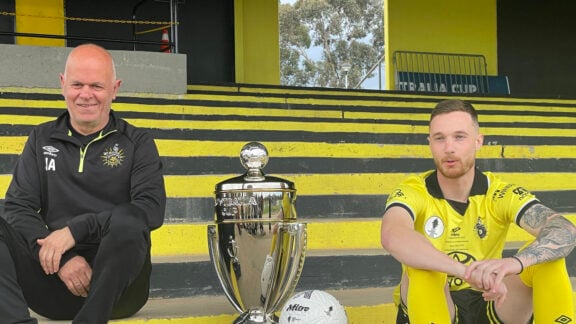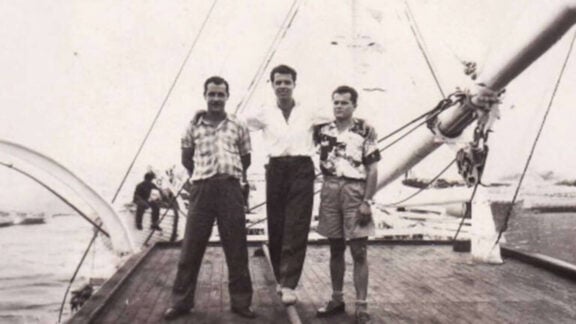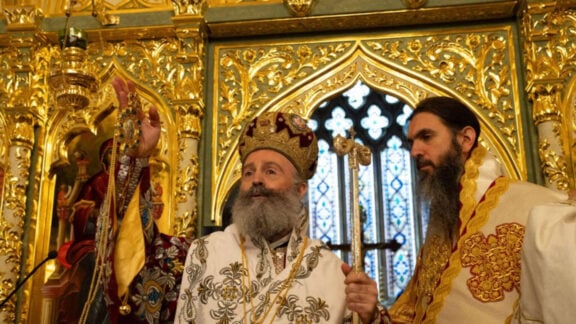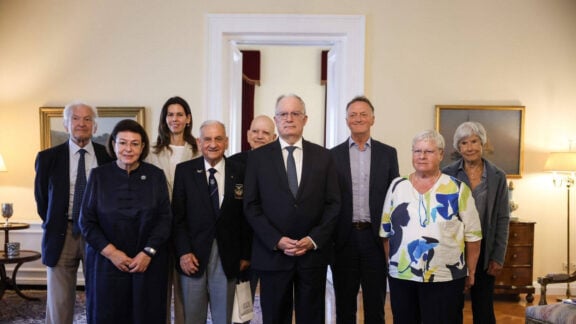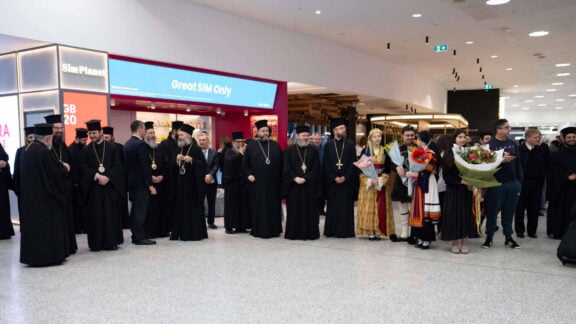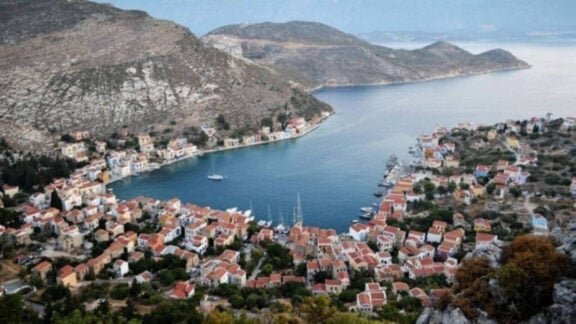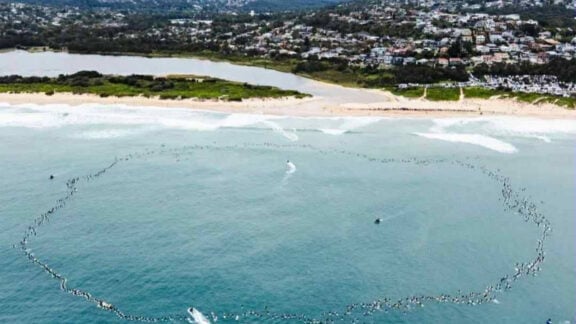The articles 16, 20, 21 of the Lausanne Treaty, signed in 1923, abandoned the idea of Turkey having any rights in Cyprus from that time onwards. This was because the allies found Turkey guilty of the genocide towards the Greek Cypriots when they attacked and invaded Cyprus in the expansion they carried out during the Ottoman Empire in the year 1570. At that time there were no Turkish Cypriots living on the island.
As evidence of this, consider the following clause from the Treaty.
At that time, it took them eleven months to take the city of Famagusta to complete the invasion and they lost over 80,000 Turkish soldiers. In revenge they killed over 100,000 Greek Cypriots – most of them civilians, women and children. Others where exiled and a large number were forced to change their religion to stay alive.
The Sultan of Turkey asked to send him 2000 of the most beautiful young girls and boys from Cyprus as a gift. They loaded them on boats, but one of the girls named Maria Singlitiki blew the boats up after they left the port of Famagusta and they all got killed to avoid going to Sultan as a gift.
Greek Cypriots suffered a lot during the occupation and one of the most barbaric things happened on 9 July 1821, the Turkish soldiers hung in an open space in Surayio Nicosia, Cyprus, the Archbishop Kyprianos and all the bishops because they refused to join Turkey against Greece who started the war to free their country from the Turks
The Ottoman Turks occupied Cyprus for 308 years from 1570 until 1878 when they sold the island to Britain, because they wanted them in the war they had with Russia. In 1925 Britain declared Cyprus as a colony to the British Crown – after the decisions of the Lausanne Treaty which excluded any future role for Turkey in Cyprus
When the second war started in 1940, Britain told the Greek Cypriots to join their Alliance Military Forces and if they won the war, Britain promised the Greek Cypriots freedom to unite with Greece. Over 30,000 Greek Cypriot volunteers joined the Alliance Forces as a result of this promise. However, when the war was won Britain refused to give them the freedom which they promised them.
On January 15 and January 22 1950, a vote of the people was taken to determine whether Cyprus would unite with Greece. Turkish Cypriots voted in favour with the Greek Cypriots. At that time Turkey followed the Lausanne Treaty rules; it did not intervene to stop the Turkish Cypriots from voting in favour of the union with Greece. Although over 95 per cent of Cypriots voted in favour, Britain did not accept the resolution.
Because of the situation created through Britain’s breaches of promises, on 1 April 1955, Greek Cypriots started a guerrilla war against Britain to free Cyprus and achieve the union with Greece. At that time the majority of Turkish Cypriots were in favour of these actions against the British colonial forces.
Britain was embarrassed because of the successes of the guerrilla forces and because it was coming under International pressure to resolve the issue. The British government then called a meeting in London to discuss the Cyprus problem; it did so to avoid the issue of going to the United Nations General Assembly. However, Britain adopted an extraordinary tactic; it invited Greece and Turkey to also attend the meeting and participate fully in the deliberations.
This tactic had the effect of nullifying the decision of the Lausanne Treaty of 1923. It meant that Turkey was now acknowledged as having a legitimate role to play in the affairs of Cyprus.
Archbishop Makarios, who was the representative at that time and later was elected President of Cyprus, visited Greece on 11 July 1955 and tried to stop the Greek Government (Prime Minister Papayos) joining the meeting because Turkey had been invited by Britain. He gave them a warning and advised them that Turkey (under the Lausanne Treaty) had no rights over Cyprus and they should not attend that meeting. He warned that if Turkey got involved in the Cyprus problem, if the Greek Cypriots did not suffer immediately, then their children and grandchildren would definitely suffer.
Unfortunately, they did not listen to Archbishop Makarios, and they went to the meeting on 29 August 1955. From that time on, Turkey has been increasingly involved in Cyprus and this recognition of the role of Turkey by Britain completely transformed the dynamics of the whole situation – resulting in the Turkish Invasion of Cyprus in 1974.
After this meeting Britain and Turkey joined together in a joint strategy against the Greek Cypriots. They accelerated attempts to turn certain Turkish Cypriot extremists against Greek Cypriots. Thus during 1955 – 1959 when the guerrilla against Britain intensified, some Turkish Cypriot extremists killed over 70 Greek Cypriot civilians. These actions were covered up by the British authorities in Cyprus.
In 1959 under the Zurich and London agreements and under the terms which were hotly contested by Archbishop Makarios, Cyprus became an independent nation, However, there were big problems with the adopted constitution. Firstly, there was an imbalance created: although the Turkish Cypriots consisted of 17.5 per cent of the population of Cyprus they received 30 per cent representation in the government and 40 per cent in the Police and Military forces. Also Turkey received some rights to hold military forces in Cyprus and became an official guarantor: together with Greece and Britain.
Archbishop Makarios contested these developments; however, his protest were ignored by the Britain
Events then unfolded thus: Cyprus became independent in 1959 and Makarios was elected the first President by the Greek Cypriots, and Dr Kutsiouk, Vice-President by the Turkish Cypriots.
With Makarios in the leadership, Cyprus became very progressive, but the flawed constitution could not work. Increasingly, the Turkish Cypriots representatives came under pressure from Turkey to frustrate the workings of the government – including the use of the veto by the Vice President to stop the enactment of key legislation. Turkey’s aim was the partition of Cyprus. In 1962 two Turkish reporters Giurgan and Hickmet were killed by the T.M.T. organisation. Recently Nazin, Turkish Cypriot university teacher, admitted that Turkey was behind the T.M.T. murders.
In 1963 President Makarios recommended 13 points to the United Nations to amend the constitution. However, before any discussions could take place, Turkey ordered the Turkish Cypriots to withdraw from the government. The ability to have a workable government thus became virtually impossible.
On Christmas Eve 1963, some Turkish Cypriots extremists organised a plot to bomb and blow up the largest church of Cyprus (Faneromeni in Nicosia). The Greek Cypriots were lucky that a Turkish Cypriot’s girlfriend betrayed this plan to the Greek Cypriots; otherwise the Greek Cypriots would have had to cry the next day over the 1000 Greek Cypriot casualties that would have occurred. History shows that there was a reaction to these events and the two communities (which had lived together in relative peace for centuries) came into serious conflicts with each other. During this time there were many casualties – including amongst the Turkish Cypriots.
In 1964 – 1967, Turkey supported the Turkish Cypriot extremists who now carried out other attacks under the banner of wanting to split the island into Greek and Turkish parts. During this time, President Makarios did not want the partition of Cyprus and sort to keep up friendly relations with the Turkish Cypriots. It should be pointed out that the vast majority of Greek Cypriot officials and the Greek Cypriots in general liked and respected the Turkish Cypriots – even during this period of tension.
It should be remembered that, notwithstanding differences the religion, the Greek and Turkish Cypriots had been an outstanding example of communal harmony and co-operation. One reason for this was the recognition that the majority of the Turkish Cypriots are descendants from original Greek Cypriots; they were forced to change their religion during the occupation of Cyprus by the Ottoman Empire.
In 1963 when Turkish Cypriots withdrew from the government they stopped paying income and land taxes. They also received, up to today, free electricity and other welfare benefits. Turkey decided to kill Makarios because he wanted the friendship with Turkish Cypriots and he was against the partition of Cyprus.
In 1967, foreign governments and the secret agencies encouraged and overthrew the democratically elected Greek government and restored the earlier dictatorship with a military JUNTA, which was not interested in, or competent enough, to assist Cyprus.
In 1974, Turkey with these overseas forces and secret agencies supported and encouraged a group of extremist Greek Cypriots. To conduct a military coup in Cyprus and to overthrow the President Makarios. Although no Turkish Cypriot was attacked at the time of these events, Turkey found the excuse of pretending that the Turkish Cypriots were in danger. Its military forces invaded Cyprus, displacing and leaving homeless and refugees in their own country over 150,000 Greek Cypriots.
The Turkish forces killed over 6000 Greek Cypriot civilians most of them women and children. Another 1600 people most of them were taken to Turkey and they are still missing today.
Turkey thus occupied by force 37 per cent of the north island which is the most productive area; this area was producing 100 per cent of the tobacco industry, 95 per cent of the tourist industry, 75 per cent of the agricultural and 60 per cent of the mines, metals and others,
Turkey then carried out a policy of domination of the Turkish Cypriots themselves. The brought from Turkey over 500,000 settlers giving them the best properties and many privileges. These actions effectively forced many Turkish Cypriots to leave the country dropping their population from 120,000 to 78,000.
In the ensuing years, Turkey completely ignored the many United Nations resolutions ordering it to withdraw from Cyprus. Over all the years since that time, the United Nations and the European Union have failed to force Turkey to withdraw its military forces from the island and leave the two communities live in peace and harmony, the situation that they use to live for over three centuries. Although there have been many attempts to find a negotiated constitutional resolution to the crisis over the last 40 years, this has not been achieved.
I believe that the analysis above demonstrated that Britain and its governments at the time were responsible for all the initial events which resulted in the tragedy of Cyprus. In my view, Britain and its allies like the United States of America have a major moral responsibility to seek to reverse the errors that have been made and to change their policy on Cyprus. At the very least, they should encourage Turkey to permit the Turkish Cypriot representatives to act autonomously so that they can achieve an agreed resolution – which in my view is the overwhelming desire of the Greek and Turkish people of Cyprus.
Turkey should be punished and pay for all the damage made to the Greek Cypriots and Turkish Cypriot s in general.
Christos Violaris is a former treasurer of the Cyprus Community of Melbourne and Victoria and co-ordinator for the Committee of the Justice of Cyprus (SEKA)
